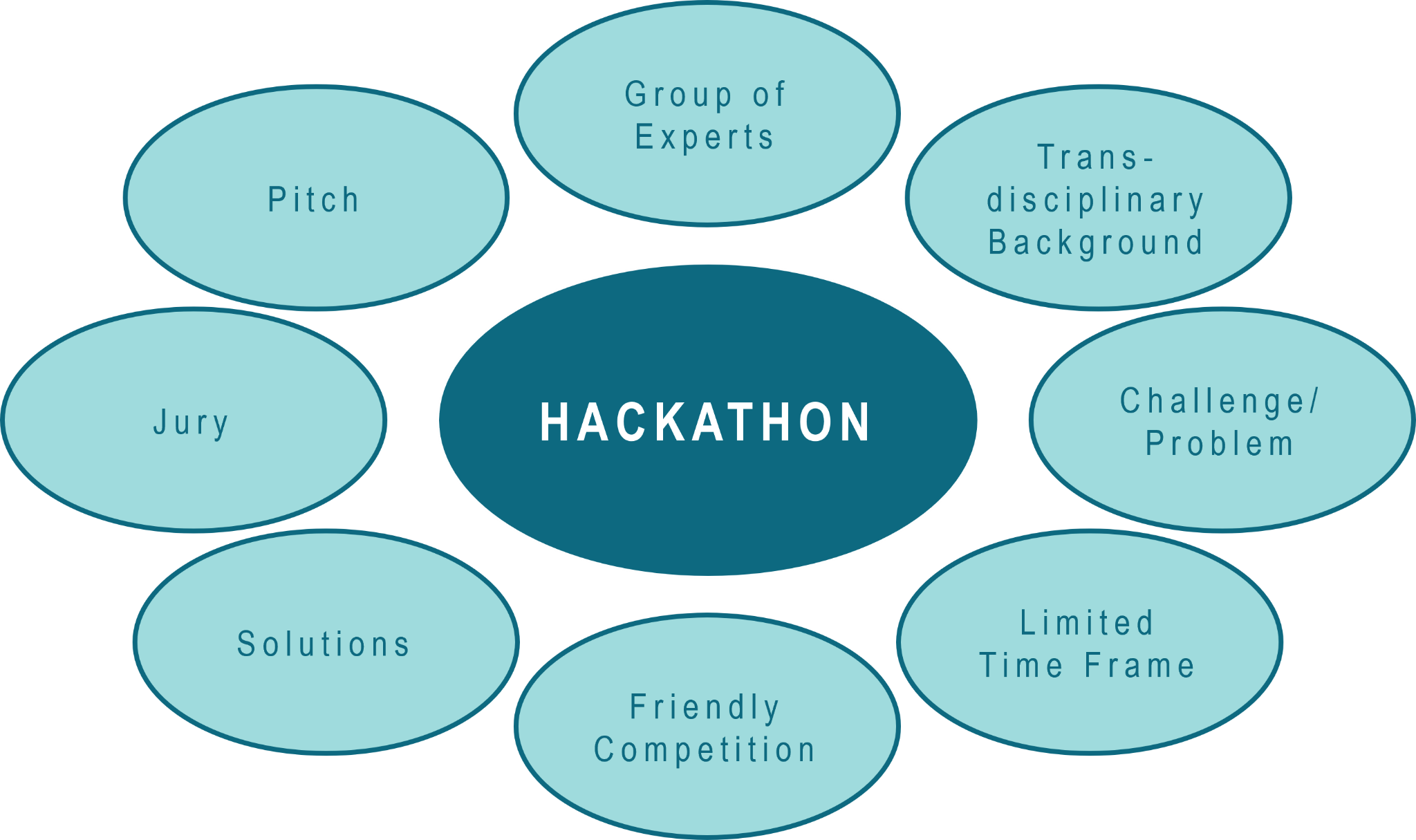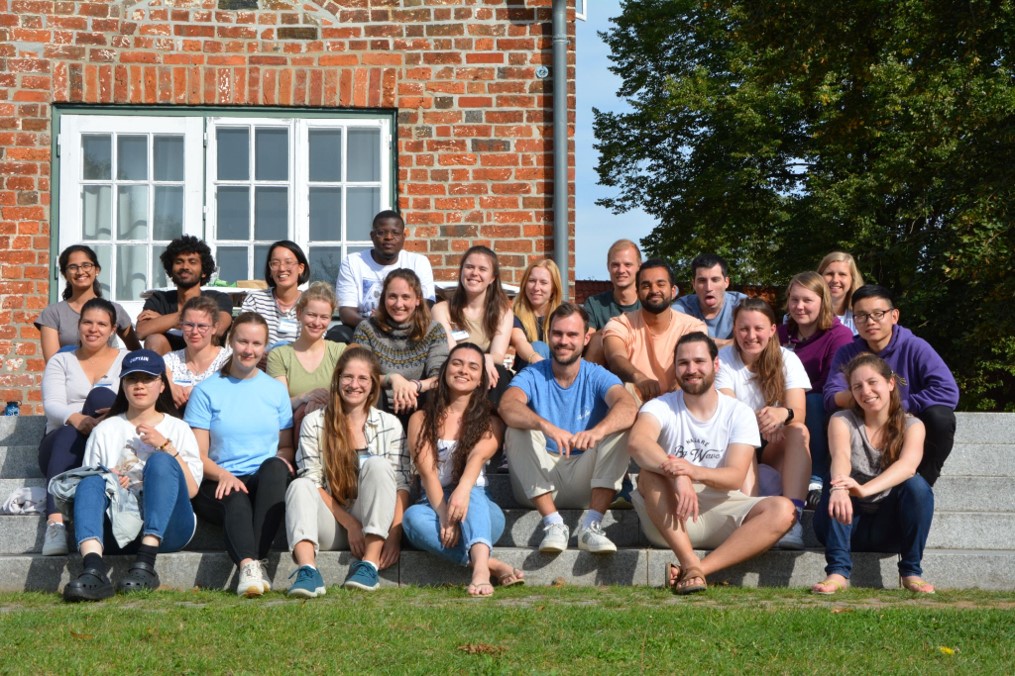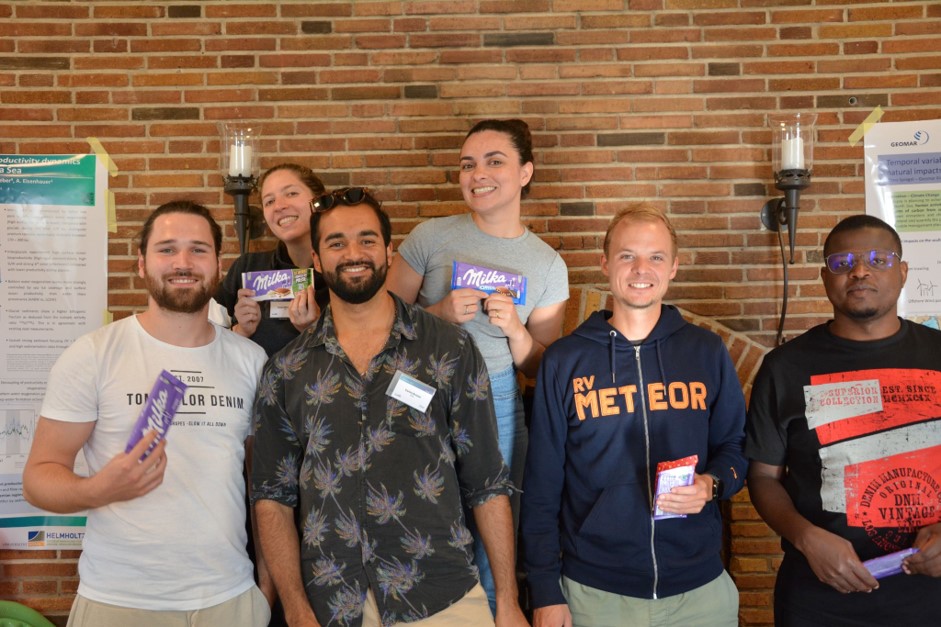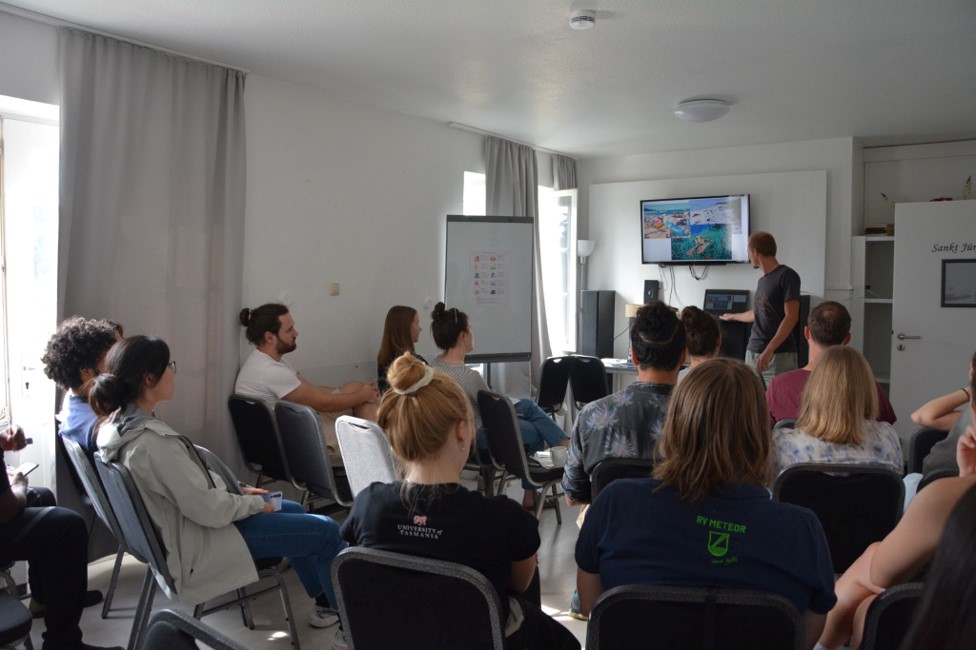If you received an invite to a “Hackathon” event – would you sign up for it? Chances are, if you’re not a programmer by training, studied IT or went far down the rabbit hole called modelling for your research, your answer will be thanks for the invitation, but no thanks.
“No way!” was my first reaction when I opened the announcement for the DokTeam/FYORD retreat and I realized that half the schedule for the three day event was blocked for this hackathon-thing. Hacking? That’s coding! And I cannot code. The tiny bits of python coding that I painfully taught myself for plotting figures were enough to scare me off from signing up for the retreat. And yet, a few weeks later I found myself in a room with a bunch of fellow PhD’s, nervously awaiting the introduction to said hackathon event. And as it turned out, I was incredibly lucky that a friend convinced me to join anyway, and I did not miss out on the experience. In the following, I would like to explain why, without magically becoming a coding enthusiast overnight, I am now a big fan of hackathons.
“What in the world is a hackathon?”, you might ask yourself. Let me break it down for you: The word is a combination (portmanteau, for the etymologists among you) of “hacking” which, to my surprise, is widely used in a coding context but actually can be understood synonymously to tinkering, or crafting. The second part of the word, “-thon” stems from Marathon, and represents the time limit that is characteristic for the event. In plain words, a hackathon is an event where a group of experts with transdisciplinary backgrounds come together and, within a limited time frame, brainstorm, discuss, and exchange to come up with solutions to a previously introduced challenge or problem. Another essential part of hackathons is the friendly competition: To create some extra motivation, solutions are developed within smaller groups. In the last stage of the event, the groups pitch their ideas to a jury, who then decide on the best idea. But in the end it really is a win-win situation, and the competition really gets all participants excited and involved – even if the price is as simple as a bar of chocolate – and the fame, obviously!

To my big surprise, “Hackathon” has nothing to do with coding – no laptop required, no binary 0 and 1’s, no server stacks and LAN cables are involved, even though there is still a good chance of nerd presence. At this point you might begin to wonder: What challenge would a bunch of aspiring marine scientists want to tackle?
At this point, an event from 1 January, 2021, comes into play that some of you have already heard or read about. On this day, the UN Ocean Decade officially launched and sent a strong warning to us all. By the end of 2030 the initiative wants to make everyone aware that our oceans are not in a good health condition and need our help! Therefore, we decided to directly tackle this serious challenge right away, which is subdivided into 10 key challenges from the UN Ocean Decade. The solutions to these problems should help us to achieve a clean, healthy, resilient and safe ocean that sustainably produces enough resources for humanity, and whose development can be predicted based on freely accessible data. So that this fascinating and magnificent environment continues to inspire and engage us. During the hackathon we tried to solve problems such as protecting and restoring ecosystems and biodiversity, developing a sustainable ocean economy, or expanding the global observing system or trying to unlock ocean-based solutions to climate change. Yes, these are massive tasks, which seems to overwhelm you. But from the moment you start to think in small-scales, it gets easier and solutions become possible. For example, the question: How can I encourage people to not throw waste into the ocean? Is rather straightforward, compared to the task – protecting and restoring ecosystems and biodiversity. But let’s get back to the hackathon…
Now that you have learned what kind of a method it is, and why we endeavored on the journey named hackathon, there remains one question to be answered: Why shall I invest precious energy, sparse time and brain capacity on something that is, at best, very remotely connected to your actual research project or your work? Disclaimer: You should try attending a hackathon at least once and find out for yourself, because this surely is very individual. But I’m happy to explain why it turned out to be a very valuable experience for myself and what I took away from it.

Being a very mixed group of researchers from diverse backgrounds, scientifically and socially, we all had different ideas, experiences and skills to bring to the table. While work in a transdisciplinary group often ends up very chaotic and messy, the hackathon provided the perfect framework to actually channel all the skills and brain matter and let us proactively work with the energy and wealth of ideas and input that we collected. Never before have I managed to brainstorm so efficiently, document the thought process on the go for later “I’ll get back to this”, and pick up on everyone’s ideas and merge them into one comprehensive project. The limited timeframe provided the perfect amount of positive pressure that it takes for people to say “we’re running out of time, let’s move on and discuss the details later!” every few minutes. I sometimes wish those endless Zoom meetings had a time frame like that… Further, it was fascinating to observe how everyone had different perspectives on the same challenge or idea. While one person suggested something, the neighbor often went “Oh, I know that! But we do it slightly differently in my field, let me explain…”. And so we managed to optimize ideas within a super short time and quench every last bit of solution and strategy from the scribbled words and sketched from the brainstorming session.

What I take away from the hackathon is, above all other, a fantastic problem solving strategy that can be adjusted and applied to pretty much any situation that requires innovation, discussion and efficient, output-oriented communication. Coming up with solutions to tackle decade or even century-scale challenges? Hackathon! Need an idea for a new paper? Thinking of a potential new research project with your group? Unsure what method to use to analyze this specific dataset? Hackathon! Planning vacation with a group of friends? Trying to fit your oversized couch in the new, tiny apartment? Hackathon! Don’t know what recipe to make for dinner with the leftovers from the fridge? …you guessed it, hackathon! Climate change, house on fire – hackathon away!
I fell in love with hackathons during this year’s Doctoral Researcher retreat, and I wish for all my fellow PhDs that they get the chance to participate in a hackathon at least once. And I am extremely grateful towards the DokTeam for organizing the retreat in general and taking on the challenge of pulling off a hackathon to broaden our horizons, despite never having done that before. Big thanks!! You guys do an amazing job, and your work is much appreciated. With that, there’s only one thing left to say: As much as I am a fan of the hackathon method, I believe the term “hackathon” is a rather unfortunate choice. Because I assume that, just like myself, many people are repelled by the name being mostly associated with coding and computer sciences. How do you feel about the name? What was your answer to my initial question (If you saw an invite for a “Hackathon” event – would you sign up for it? ), and did your answer change, after reading this blogpost? What would be your name suggestion for the term hackathon?
Emma Hadré & Helene Hilbert

I find the sea to be an enchanting and awe-inspiring force of nature. Its rhythmic waves dance along the shore, carrying with them a soothing melody that instantly transports me to a place of tranquility. The vast expanse of the sea, stretching out to the horizon, never fails to evoke a sense of wonder and humility.
There’s something magical about the way the sunlight plays on the surface of the water, creating a dazzling display of shimmering reflections. It’s as if the sea holds countless secrets in its depths, and each wave that crashes on the shore is a whisper of its timeless stories.
Whether it’s the salty breeze that fills the air or the feeling of warm sand beneath my feet, being by the sea is a sensory experience like no other. It’s a reminder of the beauty and power of the natural world, a place where one can both lose and find themselves.
In the ebb and flow of the tides, I find a metaphor for life’s constant changes. Just as the sea is ever-changing yet constant, so too is the journey we all navigate. The sea, with its boundless horizon, encourages me to dream big and embrace the unknown.
The sea, with its vastness and mystery, is a timeless muse that continues to captivate and inspire me. It’s a source of solace and inspiration, a reminder of the infinite possibilities that lie beyond the horizon.